
Published:
Readtime: 6 min
Every product is carefully selected by our editors and experts. If you buy from a link, we may earn a commission. Learn more. For more information on how we test products, click here.
In a world that always feels chaotic and fast-paced, finding moments of peace and serenity is crucial for our mental well-being. It’s something I recently experienced first-hand, staying off the grid away from the hustle and bustle in a secluded outdoor cabin. In my own way, I felt like it was a necessary step to reconnect with nature and find some respite from the chaos of city life, and I’m not alone. In recent years, a host of outdoor accommodation options, such as industry-leading Aussie operation Unyoked, have popped up across the country, giving city-slickers the rare opportunity to take in nature’s most beautiful scenes.
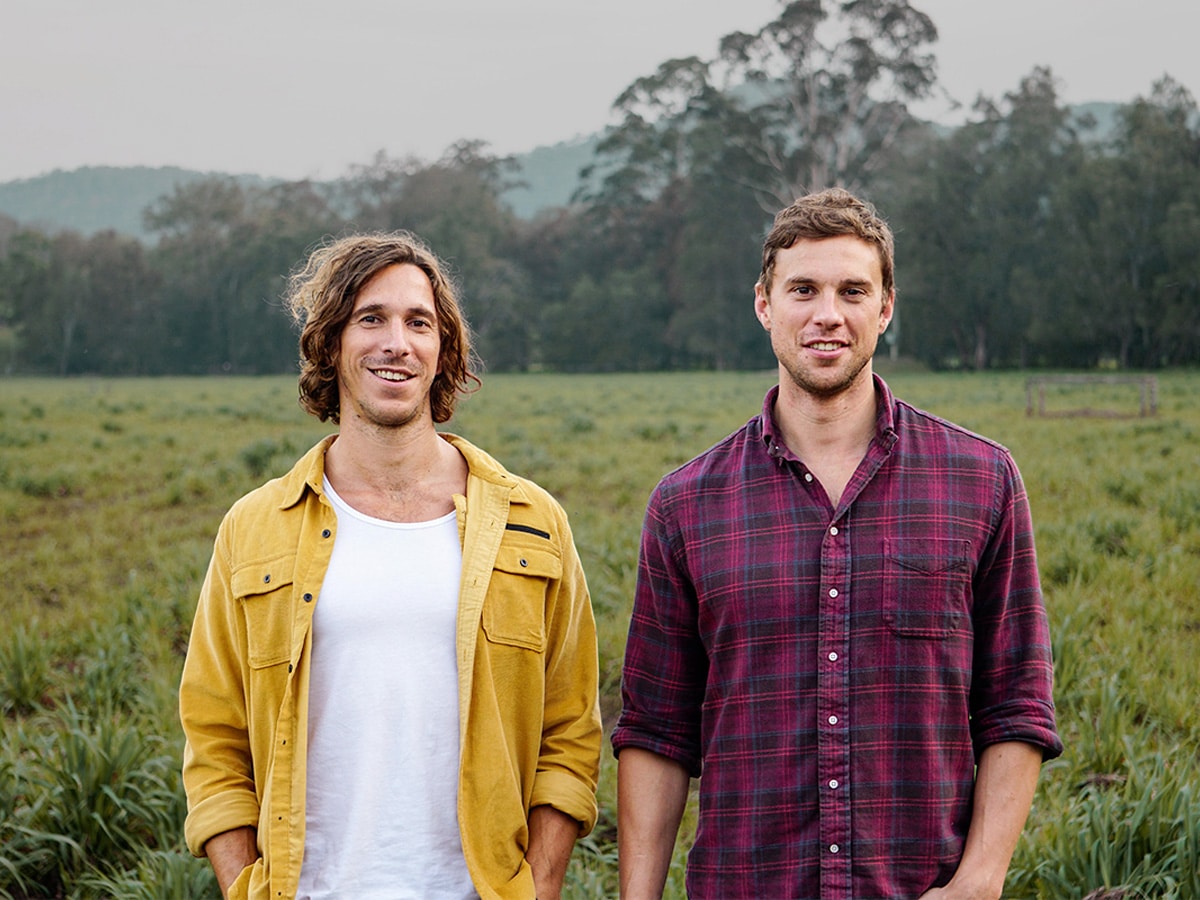
Off the Grid
Whether you are a CEO, creative or just a couple wanting to get away for the weekend, we all need time to just reset and recharge. Just ask Unyoked co-founder Cam Grant.
“Doing a startup can be quite stressful, we out of anyone take our own medicine,” he tells me. “Our dream is that people use the nature like they do the gym, they use it regularly for its benefits, its seen as a habitual thing.”
When Cam and his brother Chris founded Unyoked, they were driven by a personal quest to reclaim the outdoor connection they felt was missing from their city-centric lives. Childhood adventures in the diverse landscapes of Australia had instilled in them a love for nature that their corporate careers couldn’t satisfy. They envisioned Unyoked as a way for city dwellers to regularly immerse themselves in the wild, akin to a gym routine for mental and spiritual health.
The initiative struck a chord; its 2017 launch saw a massive influx of interest, crashing the Concrete Playground’s website and proving the public’s eagerness for accessible nature retreats. This moment marked a societal shift, a shared desire to balance urban life with the natural world. Cam and Chris had not only crafted a series of unique escapes with Unyoked but had also sparked a movement, championing the essential nature of regular escapes into the wilderness as a new, vital component of modern living.
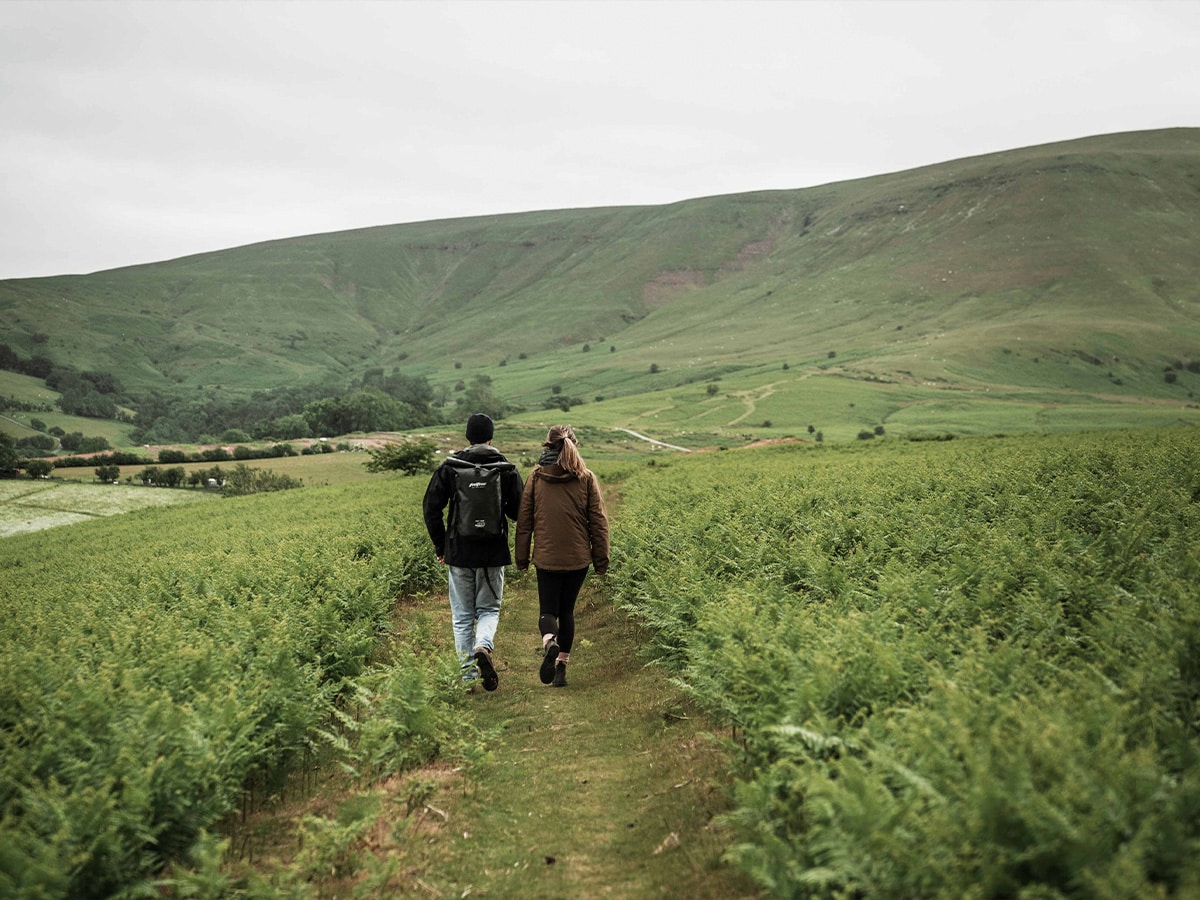
The Power of Nature
Cam’s philosophy behind Unyoked is deeply rooted in the transformative power of nature on mental well-being. “It’s like, the further you get from the city, the closer you get to your true self,” he muses, emphasizing the importance of their mission. He speaks of intentionally crafting secluded retreats that offer the illusion of deep wilderness, designed to facilitate a rapid deceleration from the hectic pace of city life.
Unyoked’s cabins, devoid of blinds for years, encourage guests to sync with nature’s rhythms, finding rejuvenation in the sunrise. “You wake up with the sun and something primal awakens in you,” Cam reflects, highlighting the natural harmony guests experience.
Even the simple act of hand-grinding coffee on the deck becomes a meditative practice, fostering a sense of presence amidst the natural soundscape. Cam attests to the scientifically-backed benefits of such immersion, “Nature isn’t just a backdrop for relaxation; it’s an active participant in our mental health,” alluding to the healing powers of the environment.
From de-stressing and enhancing focus to improving interpersonal connections, the effects are palpable. His personal escape to a cabin amid the stress of a fundraising round underscores the efficacy of this approach. As he describes the release of tension on the winding drive in, the almost immediate peace upon arrival, it becomes clear that Unyoked isn’t just offering a getaway, but a return to a more grounded, essential state of being.
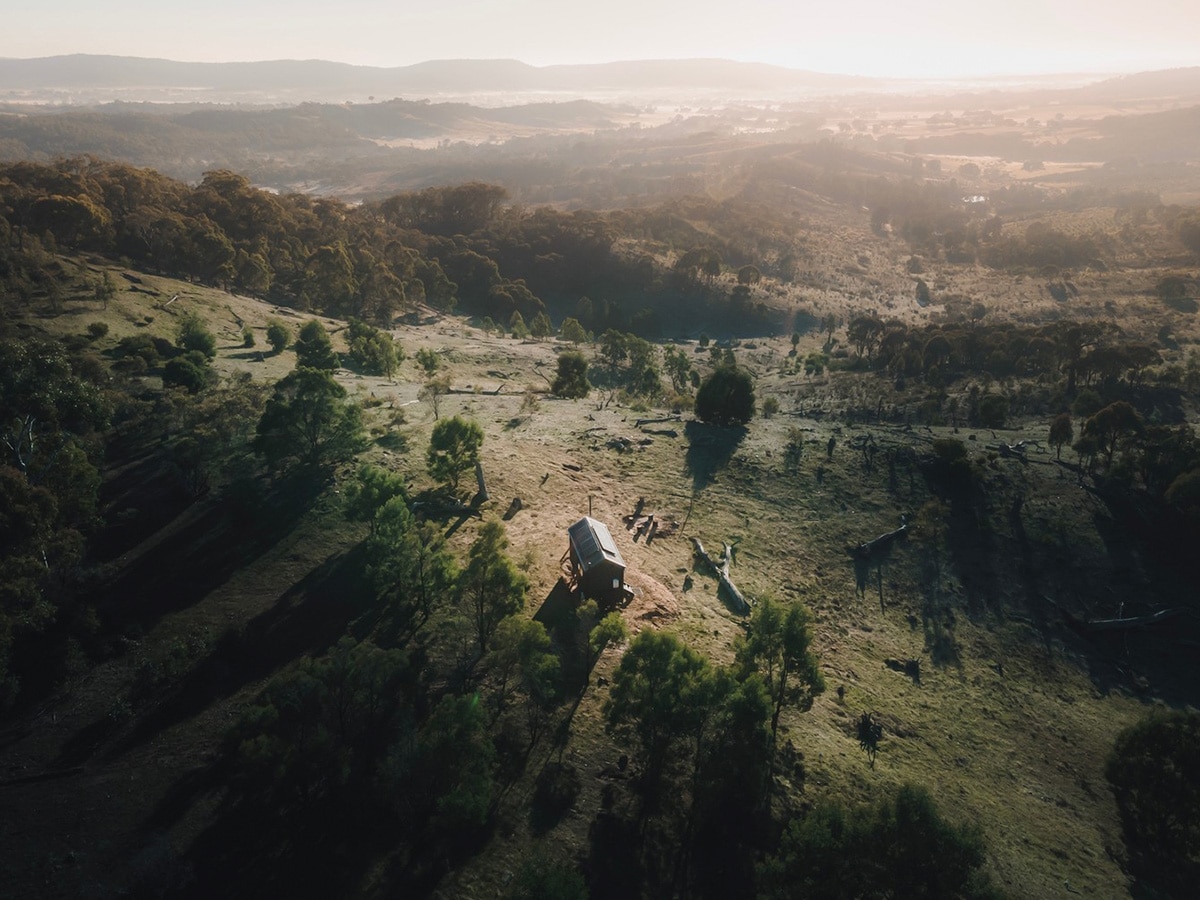
“That first breath of fresh air, that quiet — it’s like the world stops, and suddenly everything makes sense again,” Cam describes, encapsulating the relief many seek. This reconnection is precisely what Unyoked facilitates, distilled in their belief that “our human nature needs nature.”
Cam delves into the mental health challenges pervasive in urban environments, like Sydney, where burnout has become an epidemic. He recounts a revealing study, “Last year, 96 per cent of about 5,000 people surveyed admitted to feeling burnout.” The link between this burnout and the lack of nature in people’s lives is a connection Cam is keen to draw attention to, especially when 80 per cent of those surveyed had insufficient time spent in natural settings.
The relentless work culture of today’s society is compared by Cam as “sprinting a marathon,” which inevitably leads to exhaustion, he states that “athletes understand the need to recharge. Why don’t we?” So this leads to the question, is society neglecting the natural cycle of exertion and recovery?
The Experience of Unyoked
Discussing the transformative experiences of Unyoked’s guests, he says, “There’s this sense of calmness,” a sentiment he describes as a weight lifted from one’s shoulders. He shares a poignant quote from a guest: “When we left this morning, I told Fred my bag was less heavy, but it was the same weight as when I entered the cabin” highlighting the metaphoric lightness that reflects a de-stressed mind. Cam advocates for a balanced approach to technology in their cabins, promoting the idea that disconnecting helps guests gain perspective.
For those seeking to maximize the restorative potential of their stay, “it’s about resetting with intention,” to embrace both the solitude and serenity of the environment. It is important to engage with the natural surroundings and pause, allowing nature to facilitate a mental and emotional cleanse. The initial sense of seclusion when arriving provides a moment of “Now What.”
Returning to fundamental human needs and the simplicity of thriving in a natural environment which is essential to counteracting stress and the complications of modern life. Our relationship between urban life, nature and mental well-being is evolving and Cam emphasizes the idea of a balanced blend, stating, “I think it’s gonna be a mix; I don’t think we’re gonna see a big, huge exodus of people to move away from the city, like I think there are too many practicalities and sort of cultural impacts that we can’t just all disappear into the woods, you know, but it’ll be a blend.”
There is a growing importance of green spaces within urban environments as “there’s so much research around the benefit of green spaces that cities are gradually building more parks and a lot more government-driven initiatives to have green spaces, which allows people to change their working dynamics by going on walks for meetings or outside brainstorming sessions.” Employers should be incentivised to allow employees to work in nature as “being outdoors is proven to boost your creative problem-solving skills by up to 50 per cent” Cam explains.
This compelling perspective on the evolving relationship between urban life, nature and mental well-being, highlights the need for harmonious coexistence and the integration of nature into our daily lives for our enhanced creativity and well-being.
You’ll also like:
Basalt Orange is the Dream Getaway from Sydney You Need Right Now


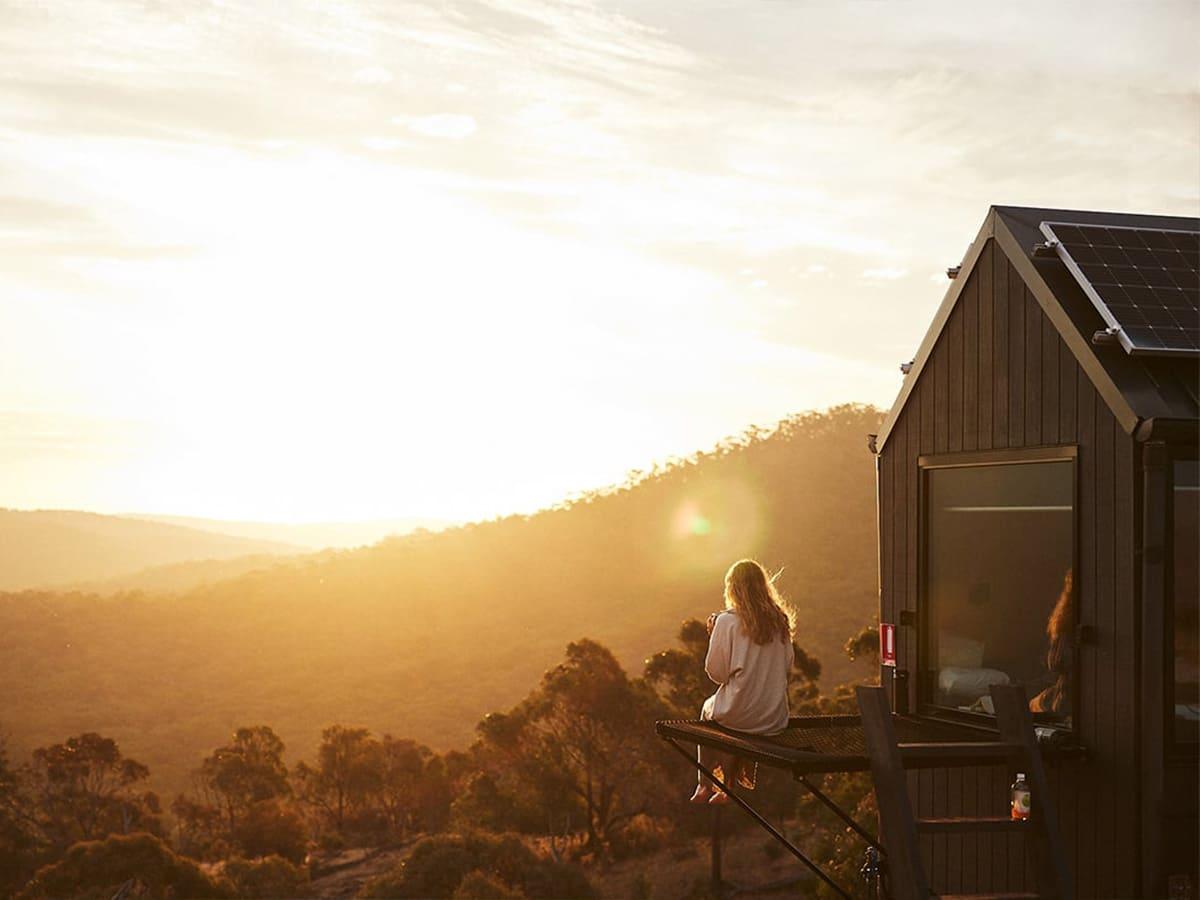





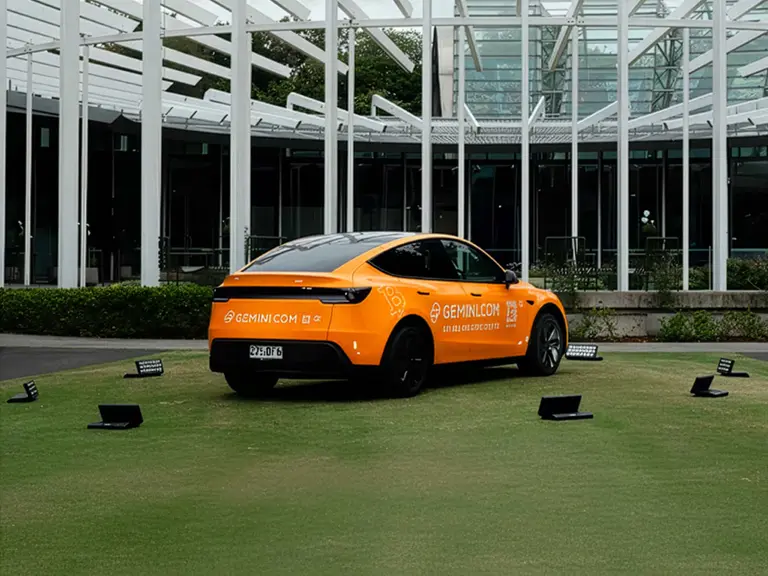
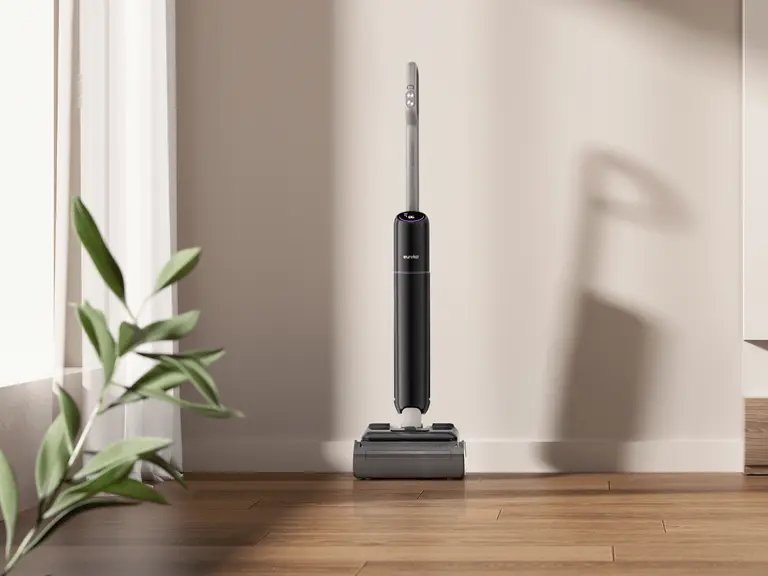



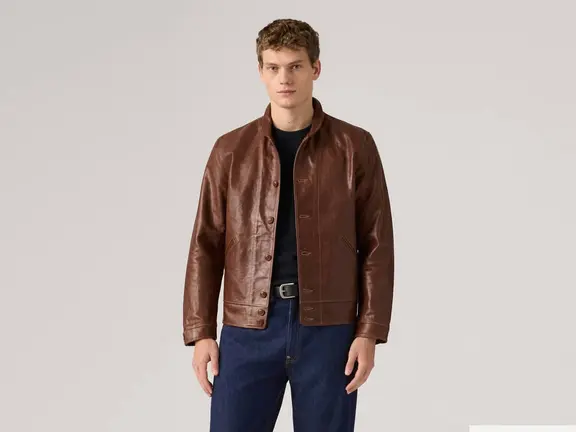






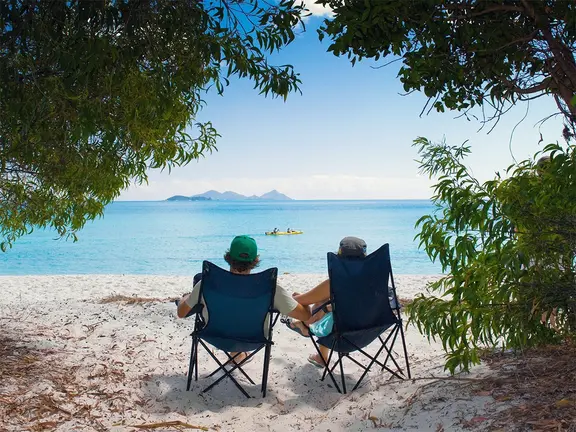













Comments
We love hearing from you. or to leave a comment.